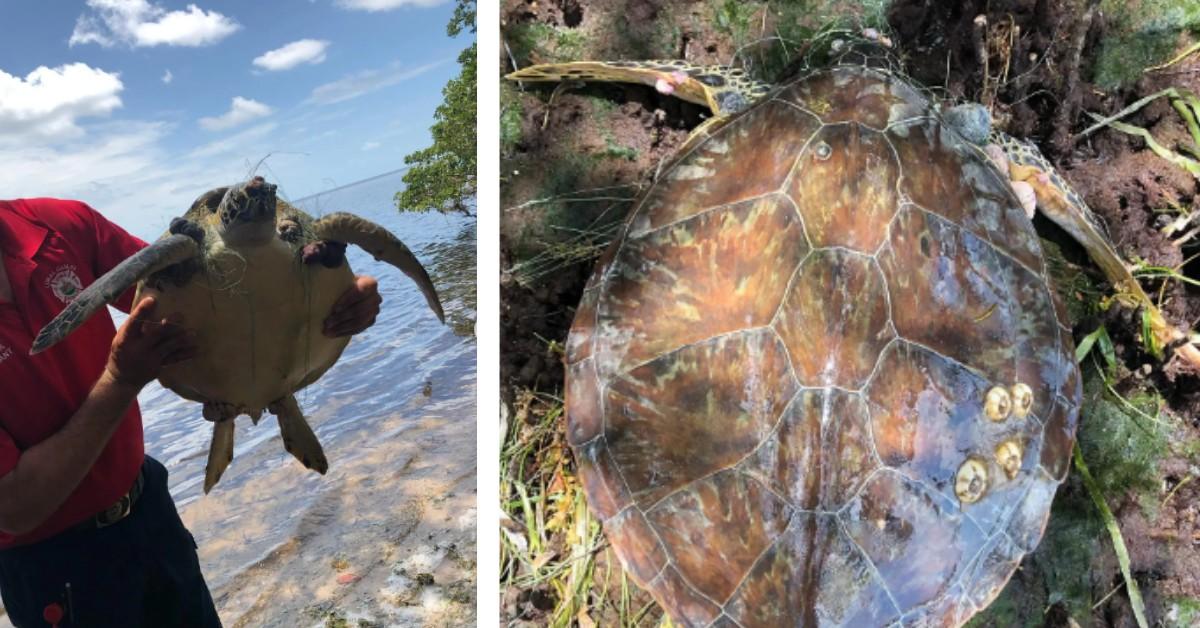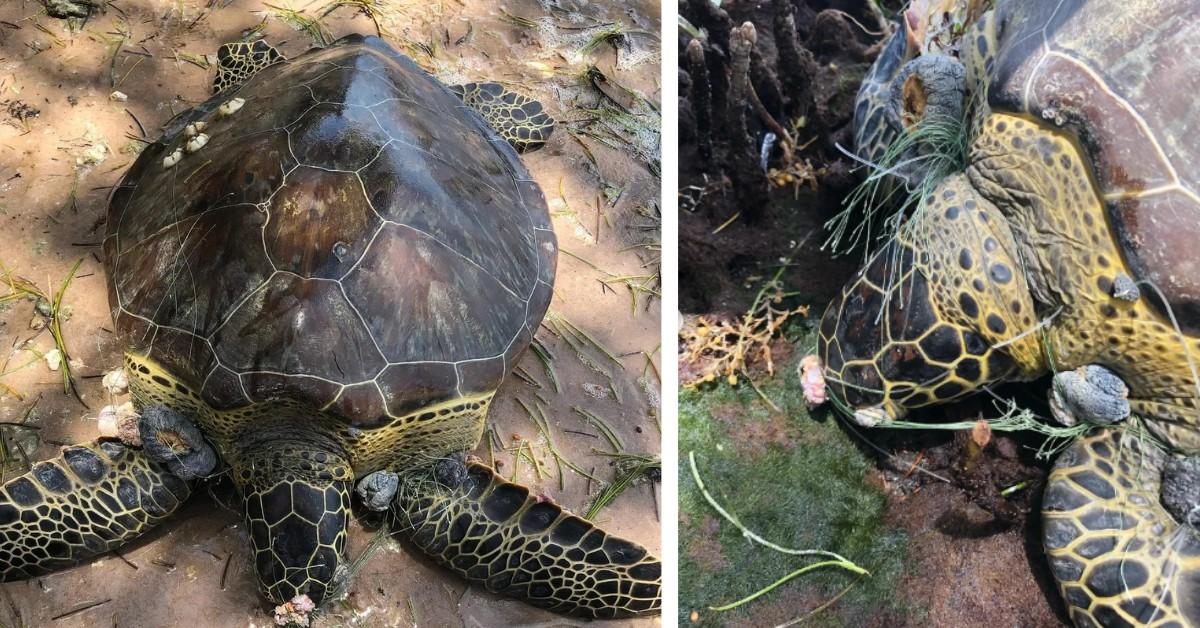Fire Dept. Rescues Young Turtle in Florida, Highlighting the Dangers of "Ghost Nets"
This story has a happy ending.
Published July 18 2024, 12:08 p.m. ET
A juvenile sea turtle is getting another chance at life thanks to the heroic actions of a quick-thinking passerby and the hard work and dedication of some Florida agencies. The incident took place on June 4, 2024 when someone spotted the distressed turtle tangled up in some abandoned fishing line.
What happened next is a testament to the training and dedication of local officials, as well as the dangers of the plastics floating abandoned throughout our oceans. Find out what happened by reading on.

What happened with the turtle rescued from fishing nets in Florida?
Members of the Coral Gables, Fla. fire department are being hailed as heroes after they were notified about a turtle in destress on the beach at Matheson Hammock Park. According to an Instagram post the department shared about the incident, the turtle had gotten tangled in an abandoned fishing line, which was wound around the upper half of the turtle's body, including his head and neck.
After reaching the turtle, the fire department called the Miami-Dade Sea Turtle Conservation program. The conservation workers promptly freed the turtle and relocated him to Marathon Turtle Hospital where the turtle was assessed, treated, and entered into a rehabilitation program.
The turtle was tangled in a "ghost net."
A ghost net is the spectral name given to the abandoned fishing nets that are prevalent in our oceans. The World Wildlife Fund (WWF) notes that these nets are particularly insidious, and estimates that discarded nets are the cause of the majority of aquatic wildlife deaths that are caused by plastic debris.
Plastic pollution remains a massive problem in the ocean. According to the Ocean Crusaders, plastic is responsible for the death of more than a million sea birds each year. And the carnage doesn't stop there, everything from large mammals to the tiniest crustaceans are impacted by this growing problem.
There's an estimated 51 trillion pieces of plastic floating through the oceans that cover this planet — most of which comes from the fishing industry. With the vastness of the sea yet to be fully explored, it's likely that we don't even know the true toll that this pollution is taking on our aquatic wildlife. The overfishing of the oceans is also a major contributor to the issues plaguing sea creatures, especially when we see stories like this one about a turtle getting tangled in ghost nets.
Ghost gear is commonly left behind when it gets lost or discarded in the ocean, creating floating deathtraps that don't always have such happy endings. And the damage that is caused by discarded fishing gear isn't the only way overfishing is hurting sea life. In addition to the fish that these commercial ships are catching on purpose, they often accidentally bring up bycatch — fish and other marine animals they don't intend to catch — which can sometime include endangered species and animals that are illegal to capture.
Sadly, those sea creatures often don't survive becoming bycatch. While it's nice to see that local first responders and wildlife services were able to help the sea turtle in Florida, it is a stark reminder of just how dangerous the ocean has become for those who call it home.
